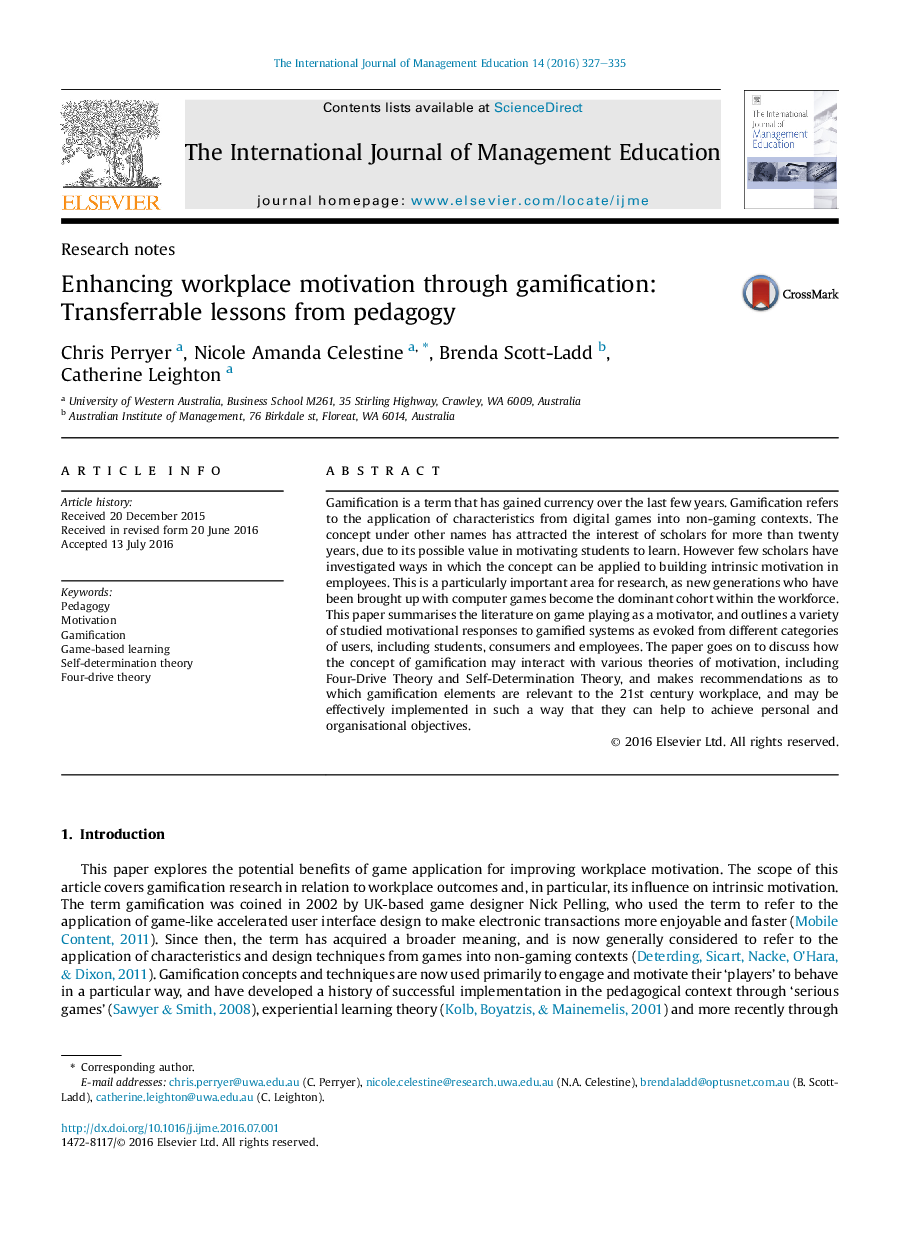| Article ID | Journal | Published Year | Pages | File Type |
|---|---|---|---|---|
| 357309 | The International Journal of Management Education | 2016 | 9 Pages |
•The effects of gamification are highly dependent on the individual and context.•Gamification strategies should emphasise cooperation rather than competition.•Gamification strategies should facilitate need satisfaction and satisfy drives.•Gamified systems should align with the firm's already existing long-term goals.•Gamified systems should provide immersive and exciting performance feedback.
Gamification is a term that has gained currency over the last few years. Gamification refers to the application of characteristics from digital games into non-gaming contexts. The concept under other names has attracted the interest of scholars for more than twenty years, due to its possible value in motivating students to learn. However few scholars have investigated ways in which the concept can be applied to building intrinsic motivation in employees. This is a particularly important area for research, as new generations who have been brought up with computer games become the dominant cohort within the workforce. This paper summarises the literature on game playing as a motivator, and outlines a variety of studied motivational responses to gamified systems as evoked from different categories of users, including students, consumers and employees. The paper goes on to discuss how the concept of gamification may interact with various theories of motivation, including Four-Drive Theory and Self-Determination Theory, and makes recommendations as to which gamification elements are relevant to the 21st century workplace, and may be effectively implemented in such a way that they can help to achieve personal and organisational objectives.
